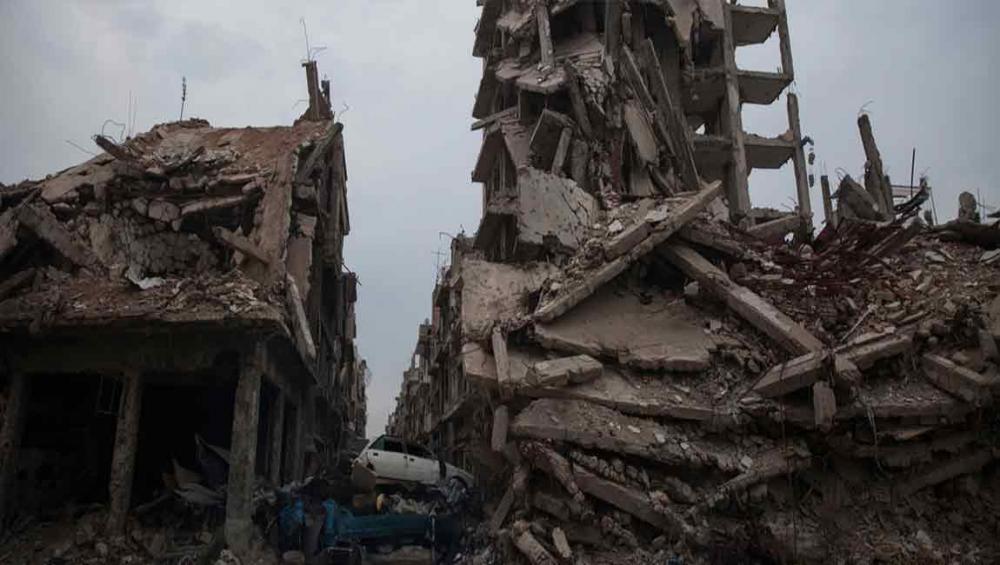Just Earth News | @indiablooms | 28 Mar 2018, 10:05 am Print

UNICEF/Penttila
New York: More than 1,700 people have reportedly been killed in military operations and airstrikes on Eastern Ghouta since late February, the United Nations aid chief said on Tuesday, describing the past few months of relentless bloodshed as “some of the worst yet” for civilians inside war-torn Syria.
Mark Lowcock said attacks on critical civilian infrastructure like medical facilities continue to be reported with at least 28 reported attacks on health facilities since mid-February and more than 70 verified incidents since the beginning of this year.
“Tens of thousands of people have also been displaced from across the war-ravaged country and many are living in overcrowded, ill-equipped shelters. There is also a severe shortage of water, sanitation and hygiene facilities, as well as rising protection concerns,” he said.
Lowcock, who is the UN Emergency Relief Coordinator, told the 15-member Council that UN agencies and their partners are working as hard as conditions permit to provide support to people in need.
Challenges range from physical security for aid workers, continued fighting, denial of access, and lack of resources.
As such, he said: “5.6 million Syrians in acute need cannot live on crumbs.”“We are essentially just given crumbs – an occasional convoy here and there, often, coincidentally, shortly before our monthly briefings to you [the Security Council members],” said the senior relief official.
Lowcock called on all Council Members as well as the members of the International Syria Support Group Humanitarian Task Force – the UN-backed task force created two years ago to boost aid delivery to besieged towns and war-weary civilians – to exert their individual and collective influence over the parties.
He also reiterated the UN Secretary-General’s call on all parties to fully respect international humanitarian and human rights law, to ensure immediate humanitarian access and guarantee the protection of civilians, including in relation to displacements and evacuations.
Concluding his briefing, the UN relief chief recalled Security Council resolution 2401 adopted last month – in which the Council demanded an immediate cease in hostilities and conditions that to enable humanitarian aid deliveries and medical evacuations of those in need – and called on the UN body to make the resolution a reality for the people of Syria.
“Whatever the difficulty, the United Nations and its partners, remain determined to follow through, for the sake of the Syrian people,” said Lowcock.
The seemingly unending conflict in Syria has surpassed World War II in terms of duration.
Since the conflict broke out in March 2011, more than 13 million Syrians remain dependent on humanitarian assistance, including 6.1 million internally displaced and over 5.5 million driven into refuge outside its borders. Furthermore, a third of houses and residences across the country and about half of all health facilities are estimated to have been destroyed.
More than 2.75 million children are out of school and about two-thirds of all Syrian children have lost a loved one, had their house damaged or suffered conflict-related injuries.
- IDF strikes Hezbollah targets in Lebanon after projectile fire toward Northern Israel; 31 killed
- Pakistan: Armed gunmen kidnap 14 workers during coordinated raids in Balochistan
- ISIS-inspired plot foiled in UK: Two men get life sentences for targeting Jewish community
- India rejects allegations, urges Pakistan to tackle its ‘home-grown ills’
- Massacre in Islamabad: ISIS takes responsibility for deadly Pakistan blast





-1763561110.jpg)
